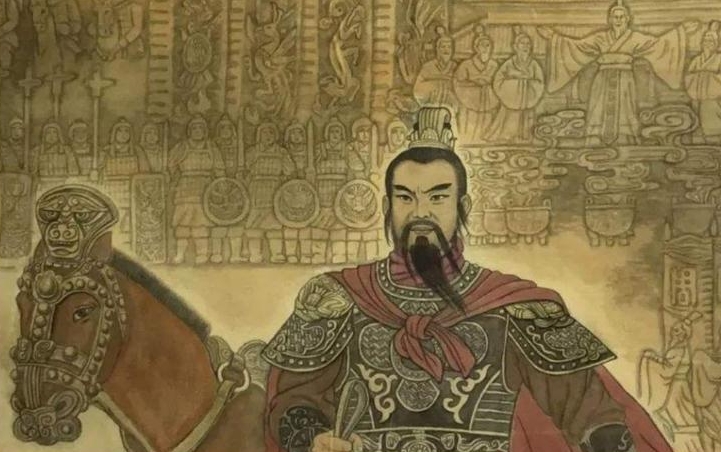Chapter 4

Master Wu said, "Only those who possess both literary and martial virtues are qualified to be leaders. One must combine rigidity and flexibility to command troops in battle. Common people often evaluate a leader solely based on his bravery, but bravery is merely one of the many qualities a leader should possess. Relying solely on bravery leads to rash engagements, which, without considering the pros and cons, is undesirable. Therefore, there are five things a leader should focus on: the first is order, the second is preparation, the third is decisiveness, the fourth is vigilance, and the fifth is simplicity. Order refers to governing a large army with the same precision as a small one. Preparation means being as vigilant when deploying troops as when facing the enemy. Decisiveness entails facing the enemy on the battlefield without considering one's personal safety. Vigilance means remaining cautious even after winning a victory, as if it were the first battle. Simplicity refers to having concise and uncomplicated laws and regulations. Accepting missions without hesitation and considering personal rewards only after defeating the enemy are the rules that a leader should abide by. Therefore, from the day of departure for battle, a leader must be determined to die gloriously rather than live in humiliation."
Master Wu also said, "There are four keys to using troops effectively: the first is to master morale, the second is to exploit terrain, the third is to employ strategies, and the fourth is to strengthen capabilities. With an army of hundreds of thousands, the ebb and flow of morale depend solely on the leader, which is the key to mastering morale. Exploiting narrow and dangerous paths, famous mountains, and fortified passes where ten defenders can block a thousand attackers is the key to exploiting terrain. Being adept at using spies to drive a wedge between the enemy, sending lightly armed troops to repeatedly harass them,分散 their forces, and causing them to blame each other is the key to employing strategies. Making chariot axles and pins sturdy, ship oars functional, soldiers proficient in battle formations, and horses skilled in galloping is the key to strengthening capabilities. Only by understanding these four keys can one become a capable leader. Moreover, his prestige, moral character, benevolence, and bravery must all be sufficient to serve as examples for the entire army, to soothe the troops, to deter the enemy, and to resolve doubts and difficulties. Orders issued by him dare not be violated by his subordinates, and enemies dare not resist where he goes. With him, the country prospers; without him, the country perishes. This is what is meant by a capable leader."
Master Wu further said, "Drums and gongs are auditory commands used to direct the army. Flags and banners are visual commands used to guide the troops. Bans and penalties are the laws and disciplines used to restrain the entire army. Ears obey sounds, so sounds must be clear. Eyes obey colors, so colors must be bright. The morale of the troops is constrained by penalties, so penalties must be strict. If these three are not established, even with a country, one will surely be defeated by the enemy. Therefore, orders issued by a leader are always obeyed by his troops. Wherever a leader points, the troops will charge ahead without hesitation."
Master Wu added, "In general, the most important aspect of warfare is to first ascertain who the enemy's commander is and fully understand his abilities. Based on the enemy's situation, adopting flexible methods can lead to success without much effort. If the enemy commander is foolish and trusting, he can be lured with deception. If he is greedy for profit and disregards honor, he can be bribed with wealth. If he hastily changes plans without deep consideration, he can be worn down. If superiors are wealthy and arrogant while subordinates are poor and resentful, they can be divided. If the enemy hesitates and the troops are confused, they can be intimidated and scared away. If soldiers despise their commander and are eager to return home, block the flat roads and pretend to open difficult paths, intercepting and annihilating them. If the enemy's path of advance is easy and their retreat difficult, they can be lured and destroyed. If their path of advance is difficult and their retreat easy, they can be approached and attacked. If the enemy is in a low-lying and damp place with blocked waterways and continuous heavy rain, they can be flooded. If the enemy is in a barren swamp with overgrown vegetation and frequent strong winds, they can be attacked with fire. If the enemy has stayed in one place for a long time without moving, and the officers and soldiers are slack and neglectful, they can be attacked by surprise."
Duke Wu asked, "When facing an enemy army, if we do not know the abilities of the enemy commander and wish to ascertain them, what method should we use?"
Wu Qi answered, "Send brave junior officers to lead lightly armed troops to test the enemy. Be sure to retreat and not seek victory, but observe the enemy's actions when they advance. If the enemy advances and halts with orderly commands, pretends to be unable to catch up when pursuing, and ignores battle spoils, such a commander is wise and should not be engaged in battle. If the enemy is noisy and chaotic, with flags in disorder, soldiers acting freely, weapons scattered, and a desperate desire to pursue and seize benefits, this is a foolish commander, and even if the enemy has numerous troops, they can be captured."